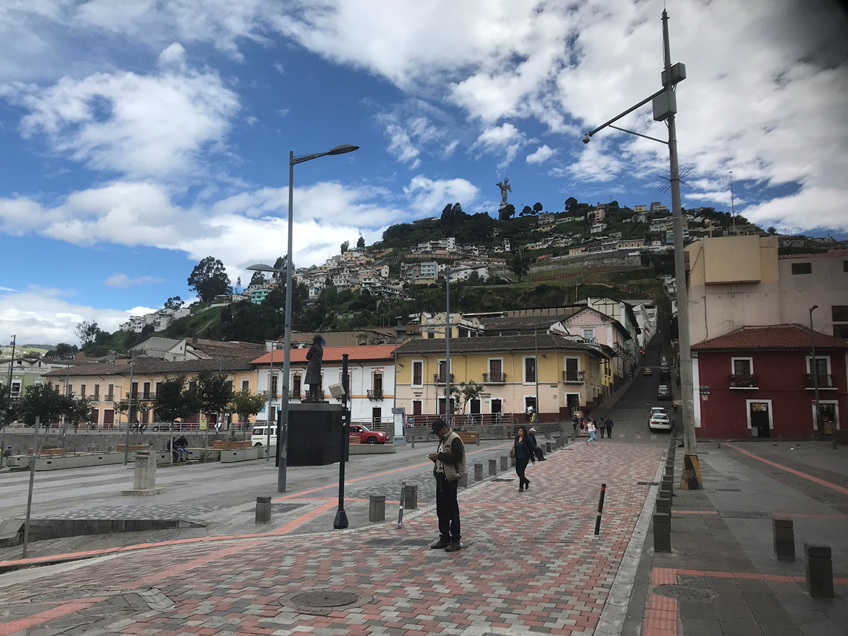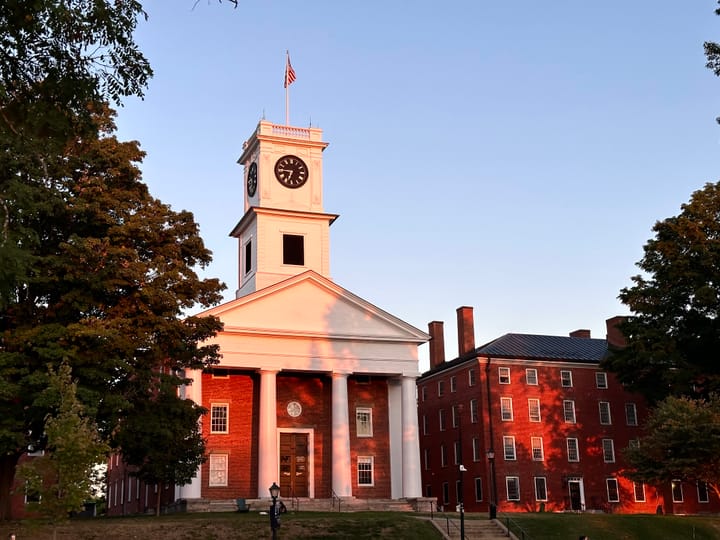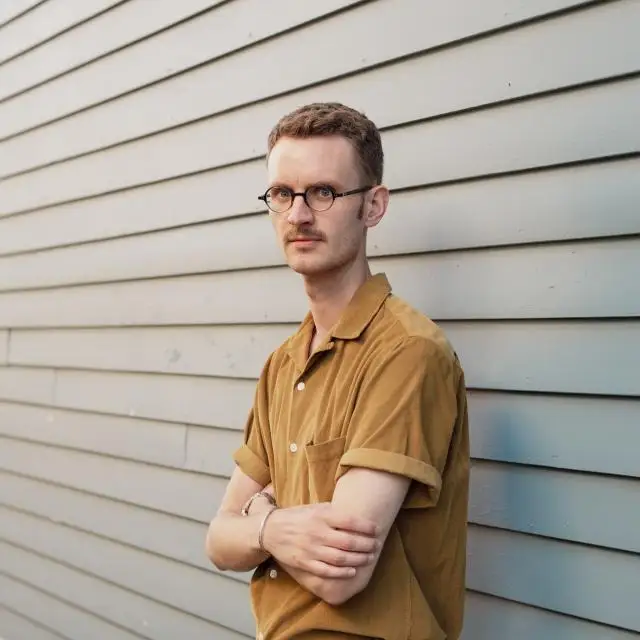Study Abroad Programs Impeded by Protests

Protests led by college students, among others, in Chile and Ecuador have reached the lives of Amherst students studying abroad in South America. The protests, some of which have turned violent, are posing barriers to transportation and class schedules, and have forced institutions to impose an early curfew for students until the end of the semester.
There are currently two Amherst students in Chile and one in Ecuador. All have chosen to remain in the countries to complete their study abroad term, though they have been given the opportunity to return to the U.S.
Unrest began in Chile on Oct. 18 after a rise in subway fares in Santiago, which prompted students to begin a fare evasion campaign. The campaign gradually escalated into widespread protests, many of which grew violent. Demonstrators cited high levels of inequality, high numbers of citizens living in poverty and inescapable debt as reasons for the protests.
Since the start of the protests, centers of transportation have been burnt to the ground, and many stores and businesses have been vandalized and looted. As a result, President Sebastián Piñera declared a state of emergency for the first time since Augusto Pinochet’s dictatorship from1973 to 1990.
In early October, students started mass protests in Ecuador following the termination of fuel subsidies. President Lenín Moreno declared a state of emergency on Oct. 4 and moved his government from the capital city of Quito to Guayaquil, Ecuador.
The U.S. Department of State’s Bureau of Consular Affairs issued a level two travel advisory on Nov. 8 for all U.S. citizens visiting Chile. Travel advisories range from level one to level four, with level four advisories instructing travelers not to visit the country the advisory was placed on. A level two travel advisory encourages travelers to exercise increased caution.
The college does not allow students to study abroad in countries with a level four travel advisory from the State Department. Level three countries can be petitioned by students as long as they and their legal guardians recognize the associated risks of visiting the location, according to Director of Global Education Office Janna Behrens. As of Dec. 4, Hong Kong, which has faced mass demonstrations since June, holds a level two travel advisory warning. A level four advisory warning is also issued for Venezuela, Bolivia, North Korea and parts of Mexico at the moment.
“There have been large-scale demonstrations in Santiago and other major cities in Chile,” the Department of State said in a statement on its website. “Demonstrations can take place with little or no notice. Many protests occur with little regard for public safety, and have resulted in property damage, looting, arson and transportation disruptions. Local authorities have used water cannons and tear gas to disrupt protests.”
“The government-imposed state of emergency was lifted on October 28, 2019,” the statement continued. “The state of emergency included curfews in multiple cities, which were enforced by police and the armed forces. While the state of emergency was lifted, there continue to be conflicts between protestors and Chilean police in Santiago and other cities in Chile.”
Students living in homestay programs in Chile have faced an upheaval in their academic lives, including early curfews, transportation disruptions and hardships resulting from looting and general disorder.
Transportation is a primary challenge for Dana Kulma ’21, who is studying abroad in Valparaiso, Chile.
“The protests [and] police’s response to the protests have affected where I choose to walk in the city. [My friend and I] were walking home from the supermarket one Friday morning and could feel the tear gas still in the air and on the ground from the night before,” Kulma wrote in an email to The Student. “It burned our throats and lips and brought us to tears.”
“My bus stop is at a new focal point that has become more active and violent in the last two weeks,” she added. “There have been two days — two national strikes — where the buses haven’t run at all, so I haven’t left my house on those days.”
Kulma added that her closest train station burned down, preventing her from traveling around the city.
Study abroad programs have resorted to setting curfews to ensure the students in their programs remain safe. “If anything at all happens to anyone in the program, the U.S. study abroad office associated with my program is going to send us home or to another country,” Kulma said. “In the beginning, my curfew was 3 p.m. For the last three weeks, it has been 7 p.m. because that is when protests start to pick up and when transportation becomes less reliable.”
The demonstrations have also impacted students’ academic experiences. After the start of protests in early October, many universities across the country closed their doors. Alyson Plaman ’21, who attended the University of Chile, said she had to find an alternative way of finishing her semester after her university closed.
The college gave Plaman multiple options for how she could spend the remainder of the semester: finding another university in Chile, relocating to Argentina or returning to the U.S.
“All options meant that we would no longer be able to finish the classes we had started in the university here,” Plaman said in an email interview. “For me, the choice wasn’t difficult since I had no desire to leave the country, but it was hard to completely start over with only a couple months left.”
“I am now doing an independent study with a professor from a Chilean university, have two classes exclusively with the other four students from my program and will get my other credits from a combination of the grades I already had in my classes at the university before the protests began,” Plaman added.
Behrens said that students’ safety is the number one priority in determining how to respond to protests like those in Chile and Ecuador. When deciding what steps to take to ensure student safety, Behrens said she usually defers to the study abroad programs that have personnel on the ground.
“We have trusted providers who have staff … who are able to get the insider’s view of what is happening. We help them strategize to ensure student safety,” she said.
Behrens also mentioned that most study abroad programs have robust network of operations. “They can move students with some — I wouldn’t say ease, but they have other locations where they can have students finish their semester,” she said.
Almost immidiately after the protests began, Behrens reached out to Plaman. “The study abroad office reached out to me as soon as things started getting complicated to check in and make sure that I was safe,” Plaman said. “They wanted to make sure that I was not only considering what was the best option academically but also personally in terms of if I felt safe staying in the country or not.”
Kulma noted that she felt disappointed she had not been contacted by the college but mentioned it may be because she is studying in Valparaiso, which is not at the center of the protests. She has been in contact with her Spanish advisor, Professor Paul Schroeder Rodríguez, since the outbreak of the demonstrations.
The protests are also affecting students who previously studied abroad in Ecuador and Chile. “My first reaction was that I was worried about my friends and host family in Quito and Guayaquil,” Raina Chinitz ’20, who studied abroad in Ecuador last spring, wrote in an email interview.
“I saw a lot of WhatsApp stories of the protests or commenting on the protests, and it was hard to tell if they were taken by my friends or just reposted,” she added. “The protests were close to some people I was close with and while they weren’t participating in them, I was worried that some of the unrest or violence would affect them.”
Being in Chile during these protests, however, has been formative for both Kulma and Plaman.
“I truly believe it’s more important that the Chilean authorities hear the demands of the country for dignity and equality than it is for me to be able to take a fun train ride or go out at night. It’s not about me at all,” Kulma said.
“The protests have enriched my independent study … The protests have inspired me, moved me to tears, scared me, excited me,” Kulma added. “It’s been really special to witness the passion and endurance of Chile to fight for justice and dignity while being attacked by police in the process.”
Correction: An earlier version of the article misspelled Raina Chinitz’s name. The Student regrets the error. This article was updated on Dec. 4, 2019 at 10:47 p.m.





Comments ()